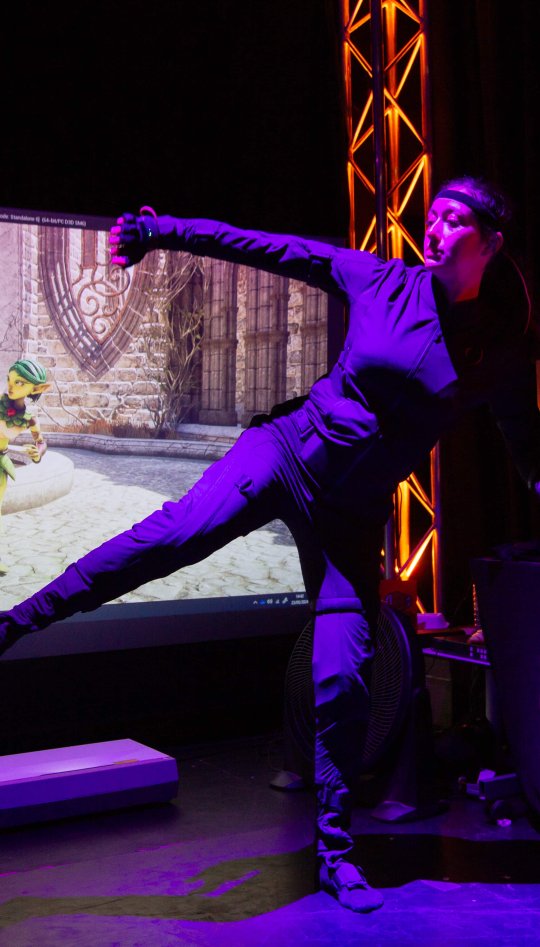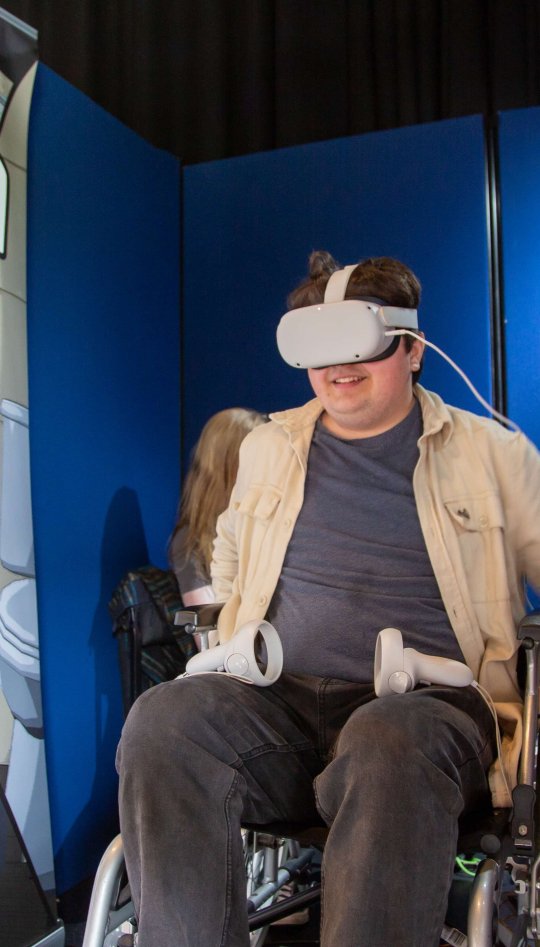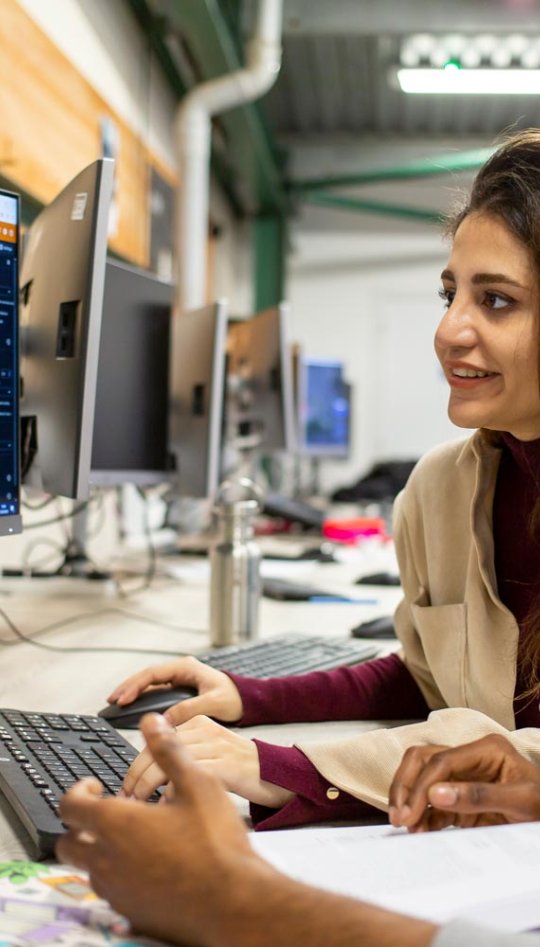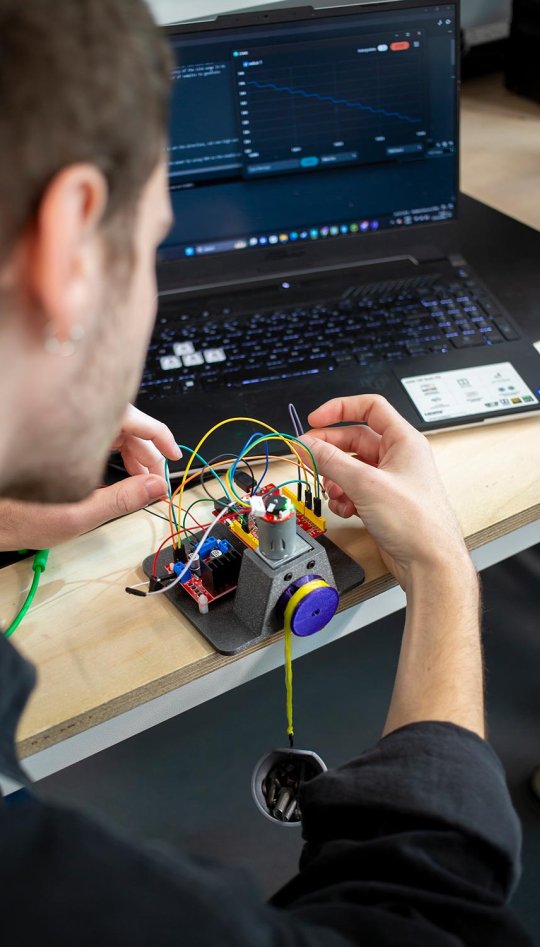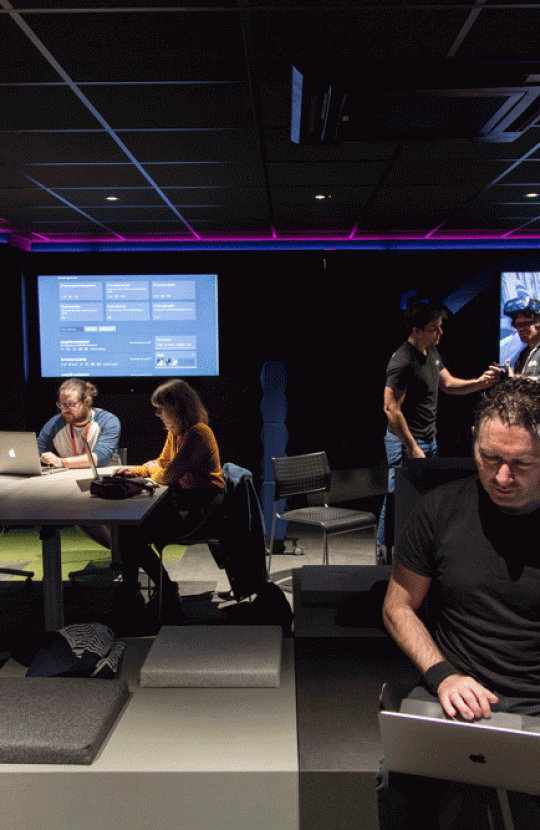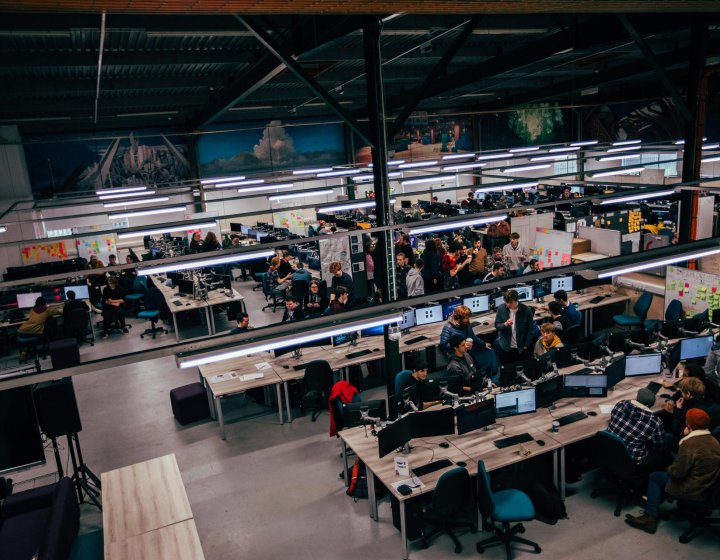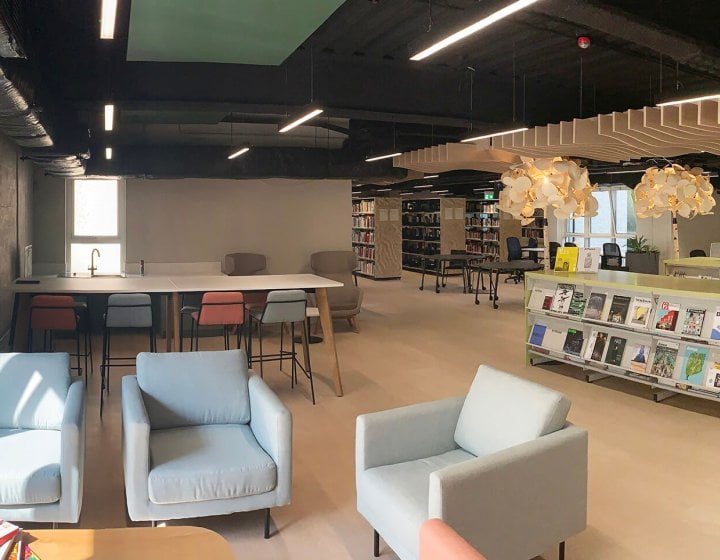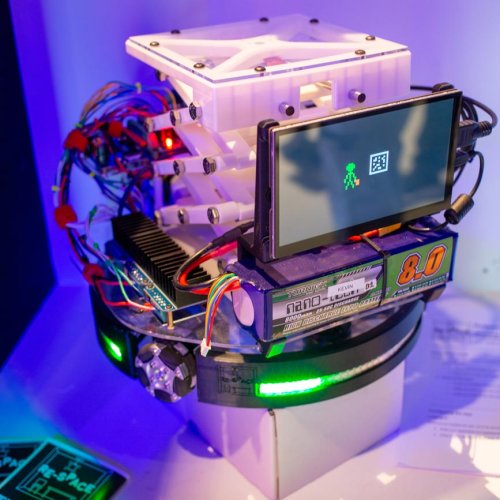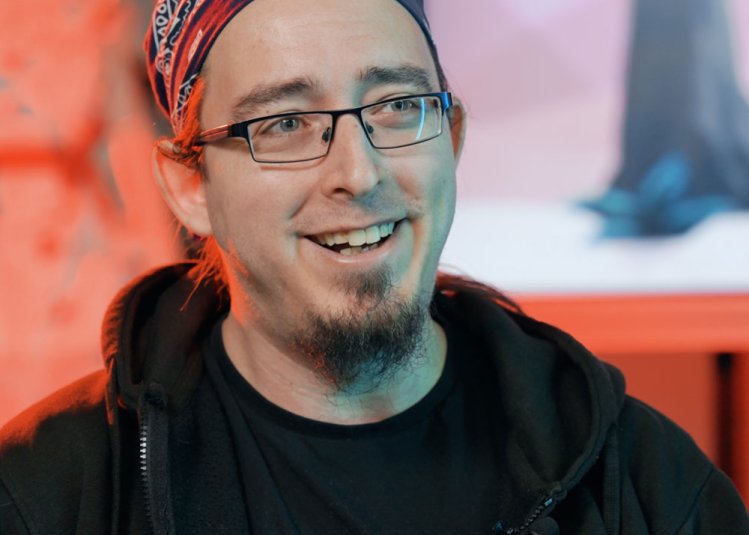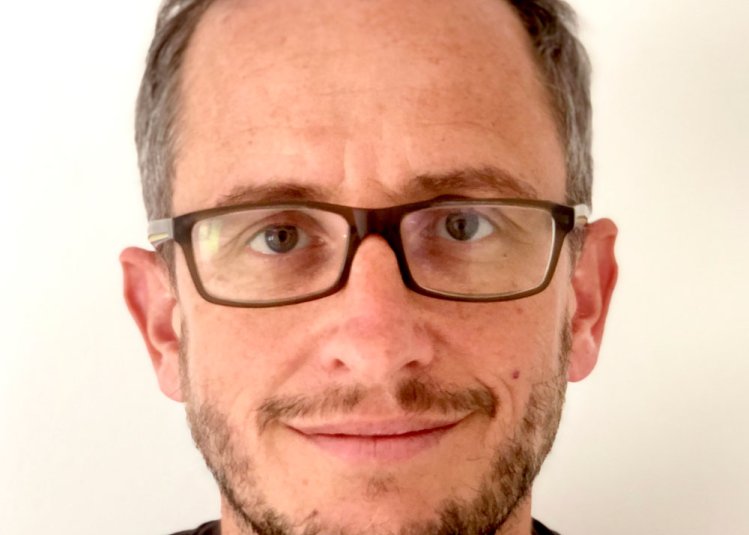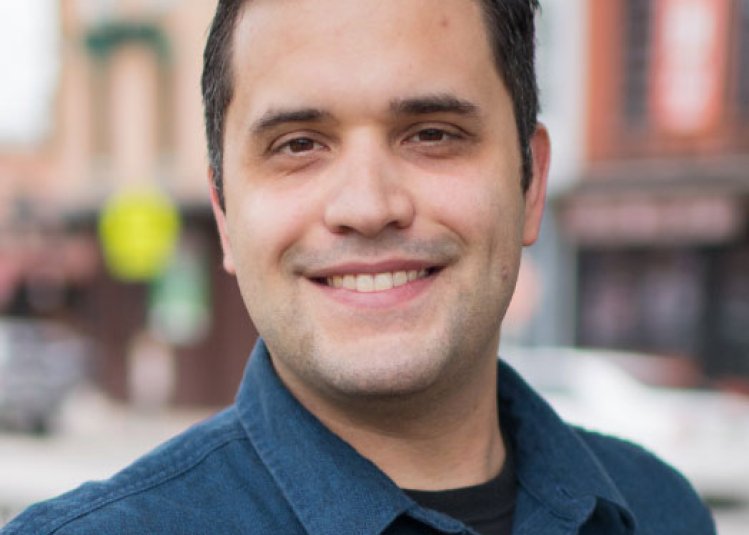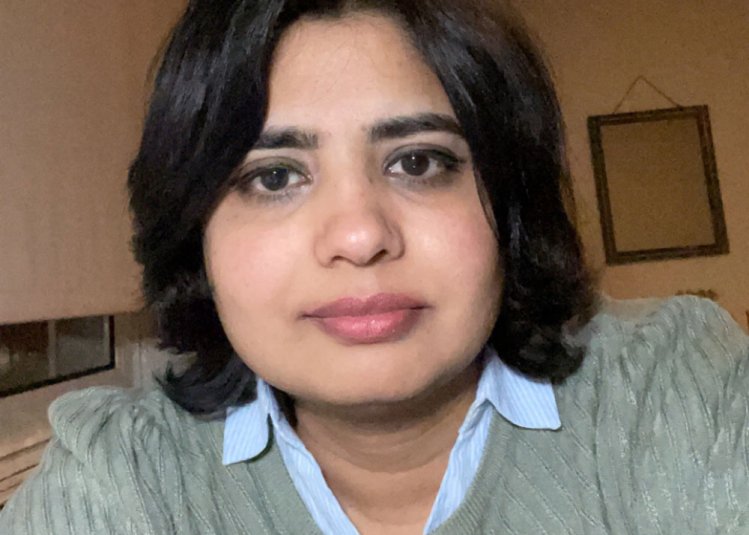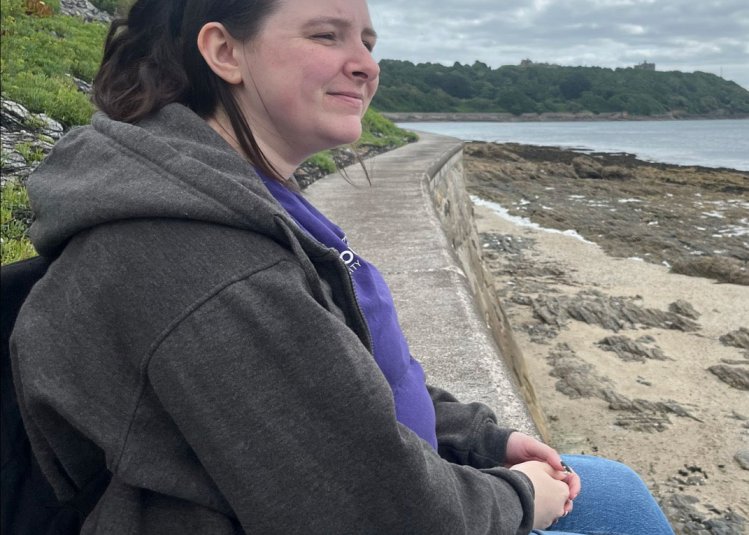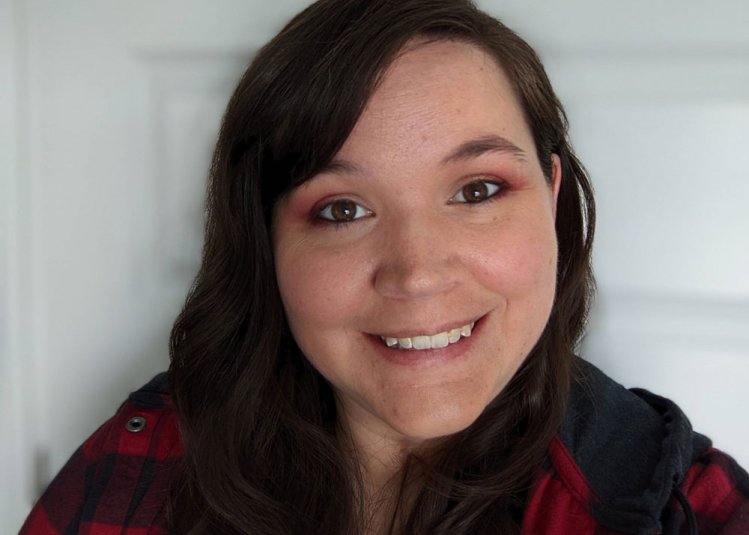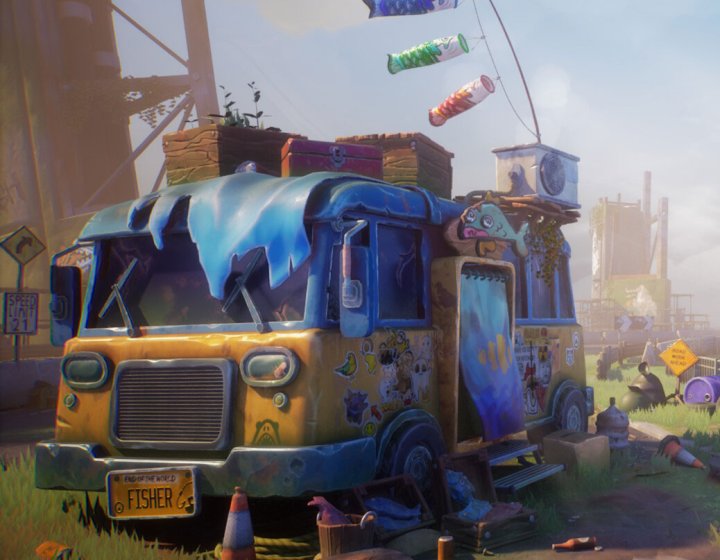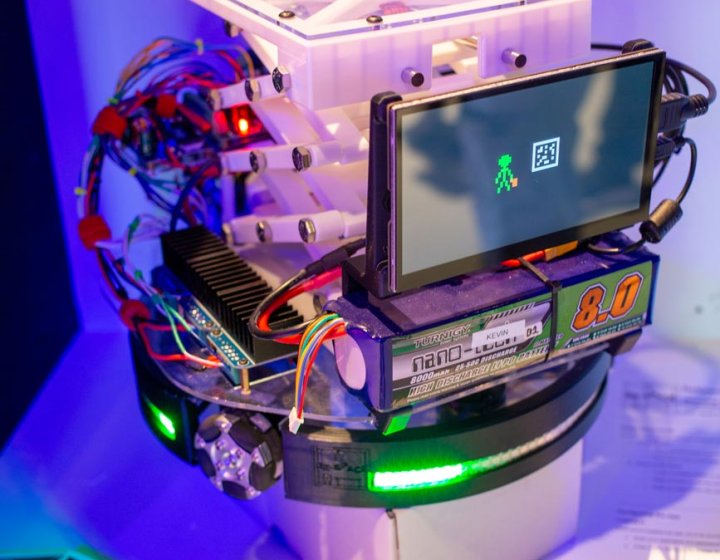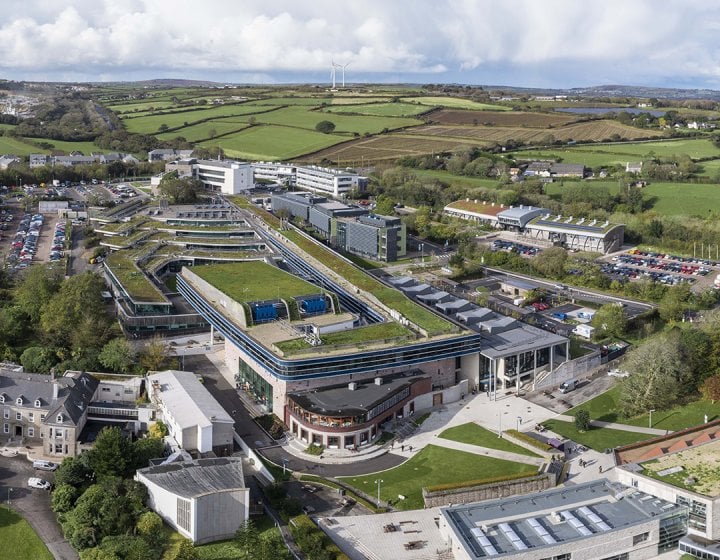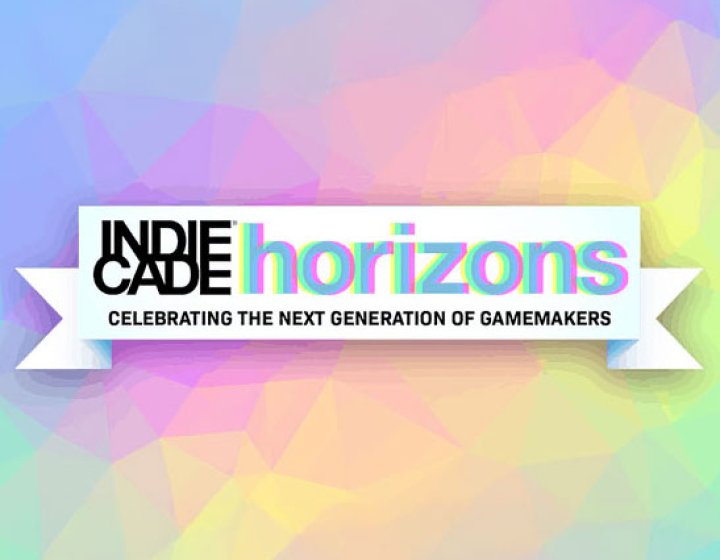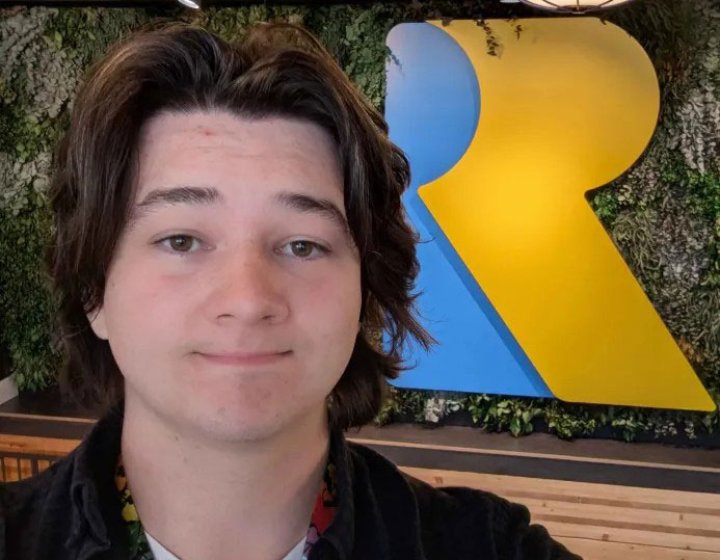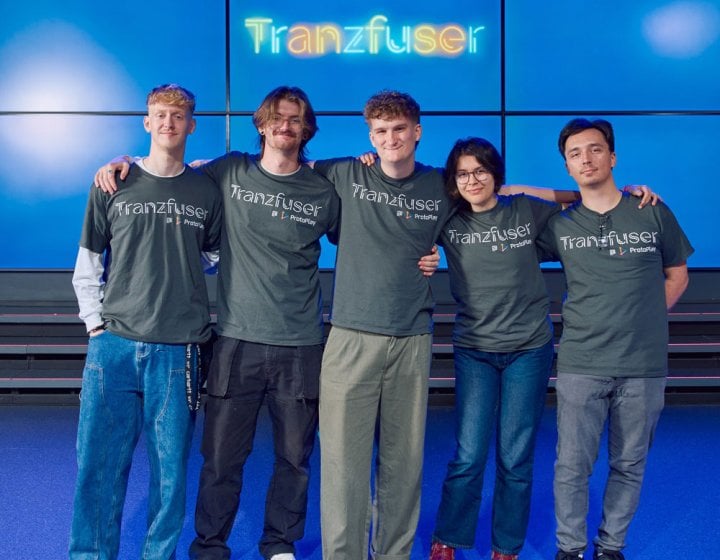Course overview
Creative Computing BSc(Hons)/BA(Hons) is new for entry year 2026.
Creative Computing is for curious minds who view technology as a limitless canvas. At Falmouth University, you’ll experiment with technology to build digital experiences that excite audiences in new ways. Discover how computation can reimagine art, design and storytelling, whilst asking the big questions about how technology is shaping our culture and society.
Collaboration is at the heart of the course. You will work across creative disciplines to explore creative coding, interactive systems, digital storytelling and immersive media, gaining hands-on experience with web technologies, artificial intelligence, machine learning, virtual reality and augmented reality environments alongside physical computing.
Creative Computing graduates step into the world as innovators: experimental, ethically aware, and confident at crossing disciplinary boundaries. As a creative technologist, you'll be able to pursue digital storytelling, virtual production, immersive experiences, or interactive art. You’ll also be able to explore opportunities in games, apps, shows, media, festivals, exhibitions, visual effects and the wider creative technology sector.
Why study this course at Falmouth?
- Creative: Turn ideas into real, interactive experiences that connect with audiences
- Future-facing: Learn to think critically and work creatively with emerging technologies such as AI and XR
- Flexible: Choose between a technically-focused BSc or an artistically-led BA, specialising through pathways in theatre, screen, or heritage to apply your skills to live performance, film and television, or cultural experiences
- Ethically-aware: Explore how technology shapes culture, identity and the environment to design, make and critique digital work to be imaginative, inclusive and sustainable
- Disruptive: Explore, experiment, prototype and play in a thriving creative environment where code, design and imagination collide to create the unexpected
- Beginner-friendly: Gain confidence with coding, experiment with new ideas and grow your creative voice along the way
- Connected: Collaborate with students from courses such as games, theatre, film, music, and performance to discover how creative ideas grow stronger through shared perspectives
- Pioneering: Graduate as a confident maker, designer, and thinker, ready to shape creative projects in digital storytelling, virtual production, immersive experiences and beyond
What is Creative Computing?
At Falmouth, Creative Computing is about curiosity, craft and care. It’s the art of experimentation: shaping technology with imagination and social responsibility. You’ll explore how digital systems, materials and the physical world can interact in ways that are expressive, thoughtful and sustainable. Through prototyping, questioning and refinement, you’ll approach digital making as a craft that balances creativity with care for people and the planet.
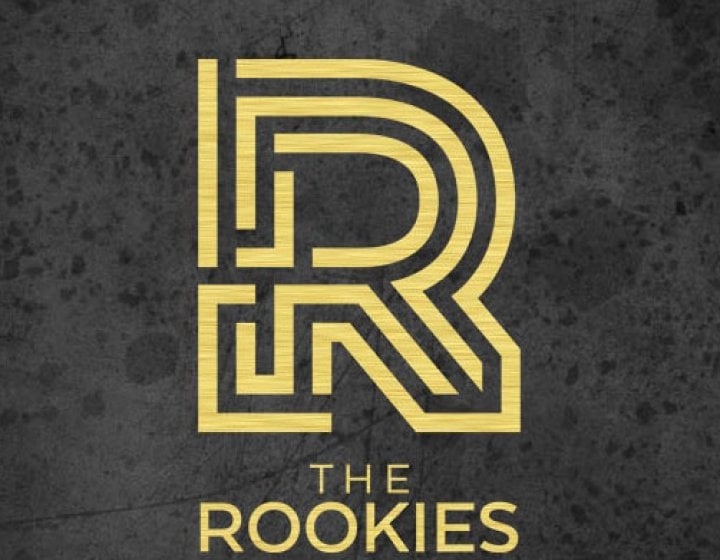
Games Academy students shine at The Rookies
12 September 2025
Five students from Falmouth’s Games Academy and School of Film and Television have reached the fin...

Robotics student develops innovative model for tracking climate change across ecosystems
03 July 2025
Cas Penfold, a third-year Robotics BSc student, has just completed her dissertation – a project th...

Indie Games lecturer reimagines 17th century France in new game
27 June 2025
Giovanni Rubino, a lecturer on Falmouth’s Indie Game Development MA (Online) course, has extensive...
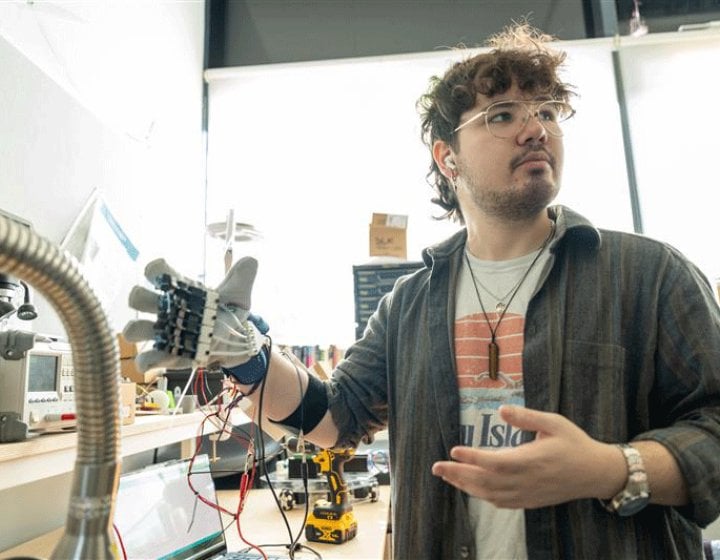
Robotics student creates a hand exoskeleton to help arthritis patients
04 June 2025
Josh Beckett, a third-year Robotics BSc(Hons) student, has created a hand exoskeleton that allows th...
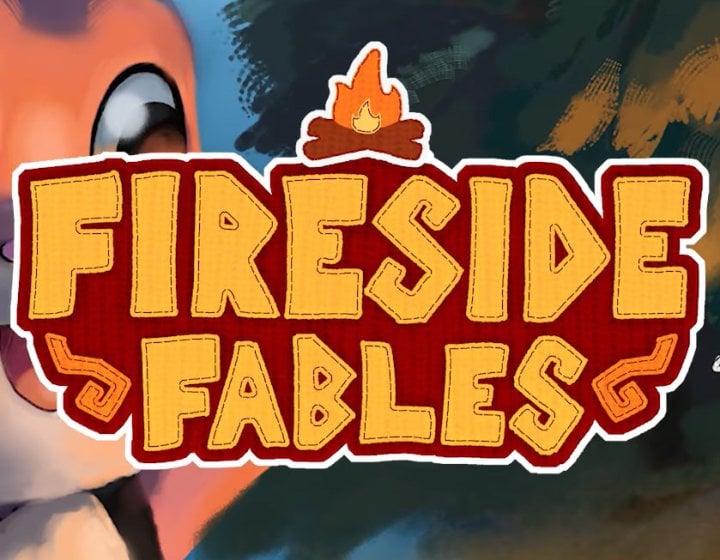
Games students support Great Ormond Street Hospital
09 May 2025
Developed by a team of Games Academy students, Fireside Fables is more than just a final-year projec...
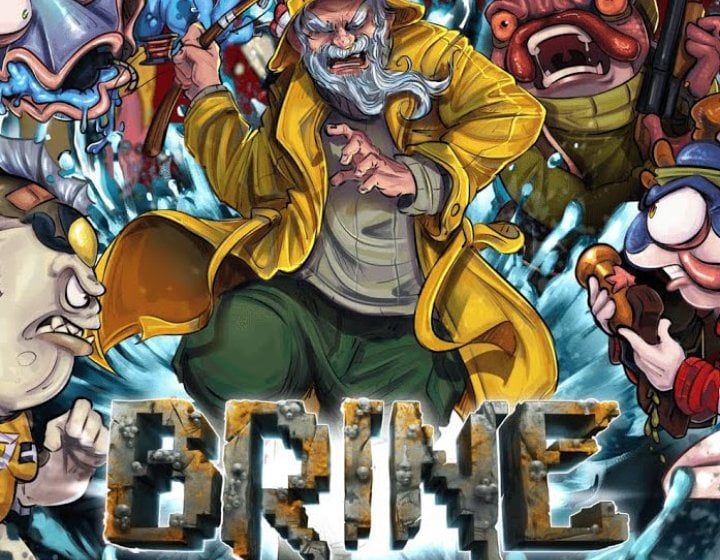
Falmouth final-year project mixes retro FPS mayhem with Cornish scenery
06 May 2025
Slippery sea creatures, battered cod, and cannonball chaos – welcome to BRINE, the chaotic Cornish...
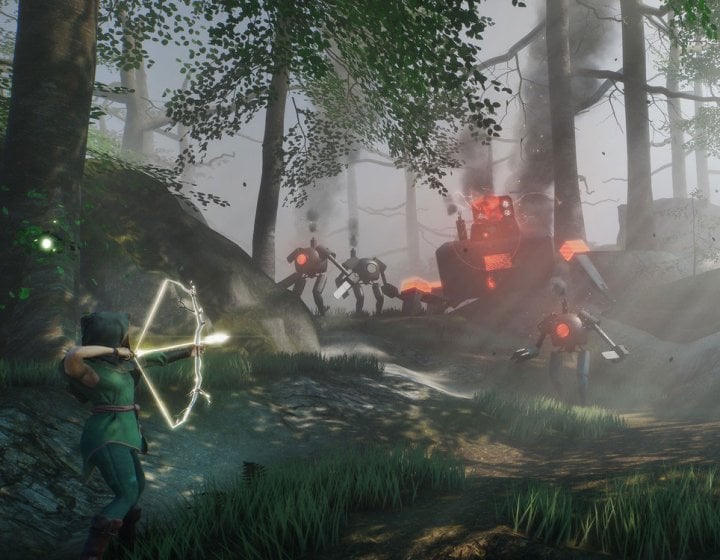
Falmouth’s Games Academy rises to 13th in The Princeton Review's global game design rankings
26 March 2025
Falmouth University’s Games Academy has once again been recognised as one of the world’s top ins...
Similar courses
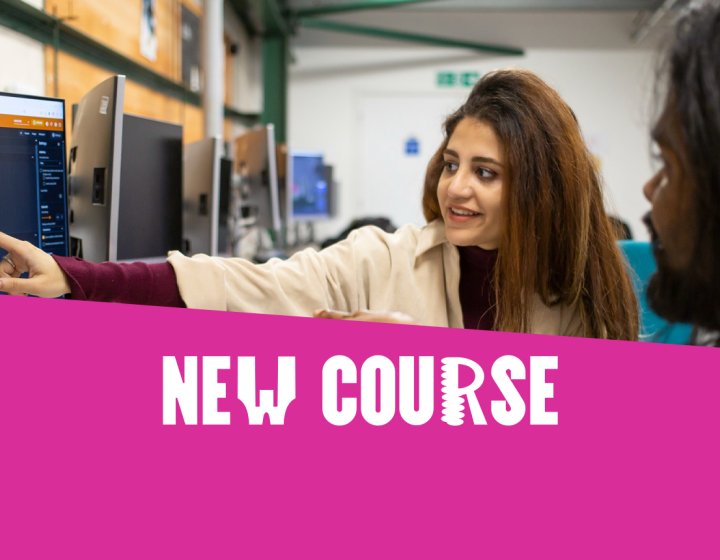
Artificial Intelligence BSc(Hons)
Artificial intelligence is transforming every corner of our world: from cars that drive themselves t...
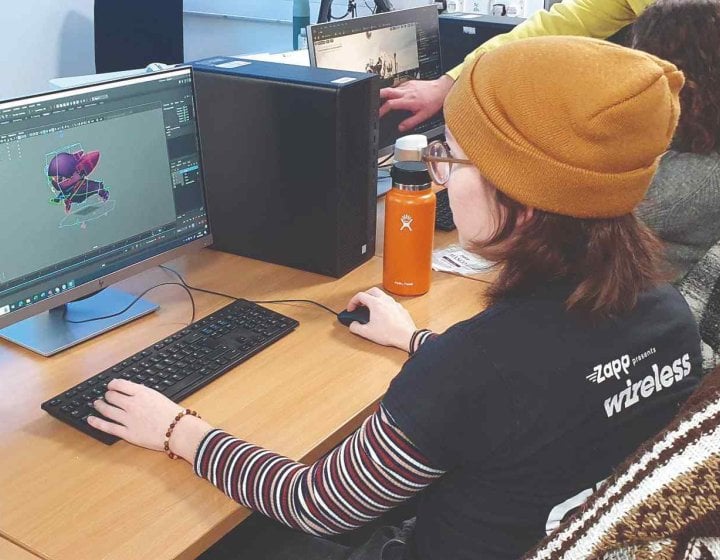
Game Animation BA(Hons)
Gain experience of working to a real-time animation pipeline and graduate with a rich portfolio of w...
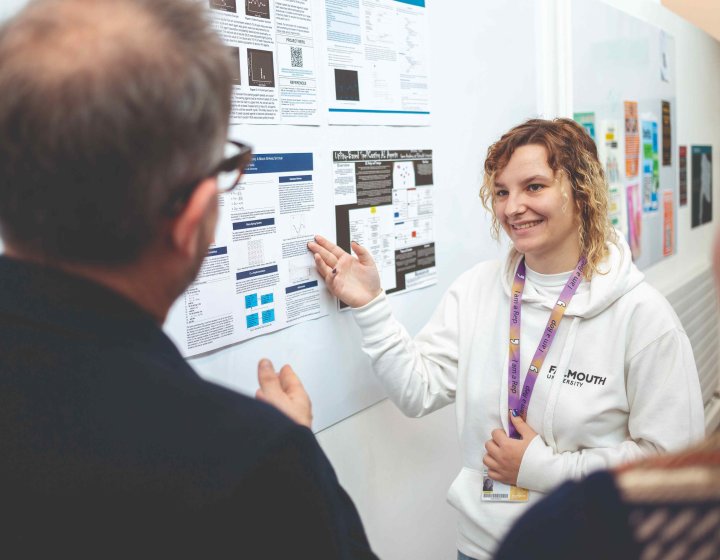
Computer Science BSc(Hons)
New immersive realities, data-rich interactions, automations and ever-more ubiquitous systems are sh...
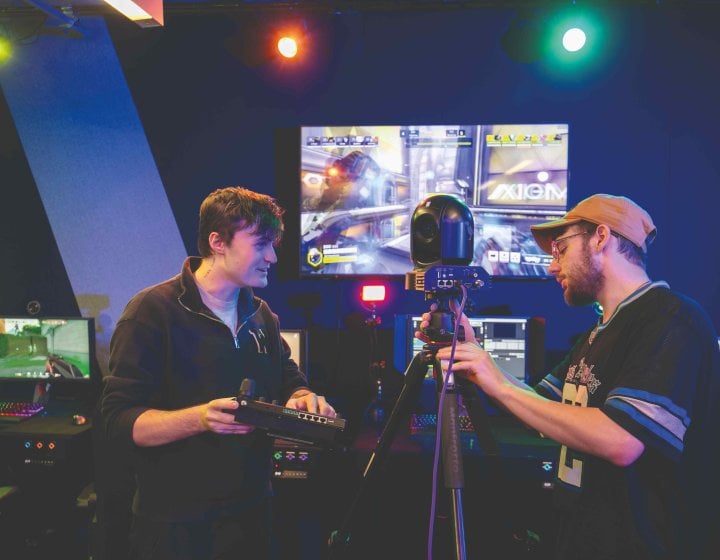
Esports & Livestreaming BA(Hons)
Immerse yourself in Esports culture on this degree, which offers a unique opportunity to be at the f...
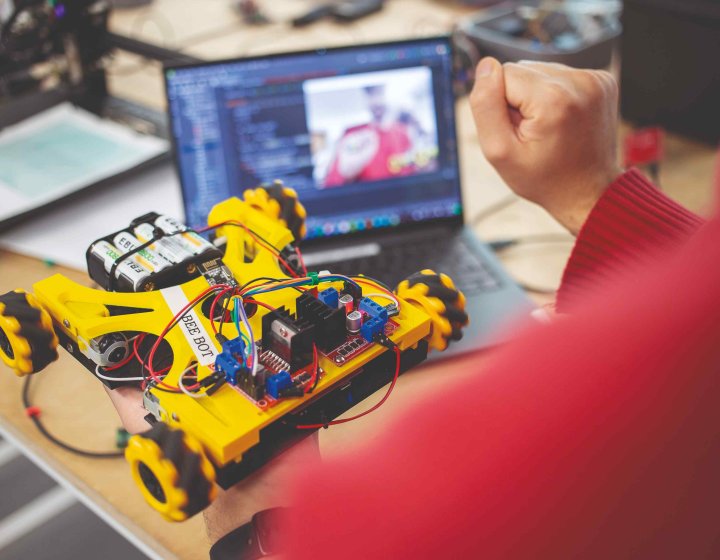
Robotics BSc(Hons)
Explore the world of artificial intelligence and create interactive robots that respond to the chall...
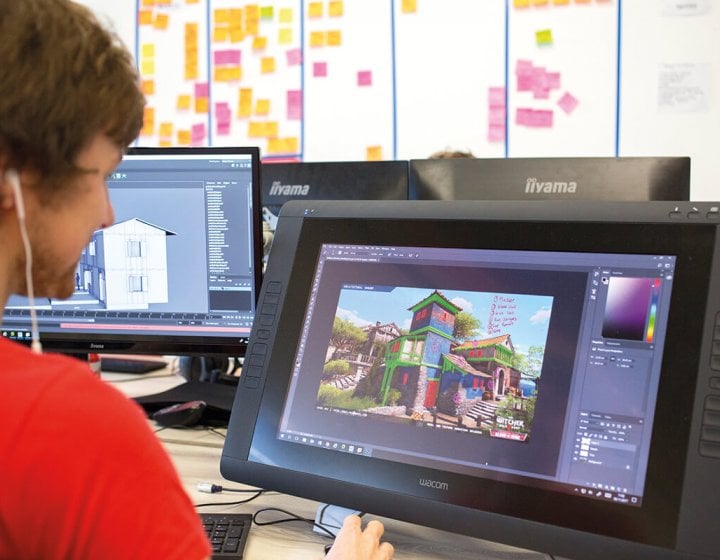
Game Development BA(Hons)
Join a community of people who have a passion for games. From day one, you’ll work as you would wi...
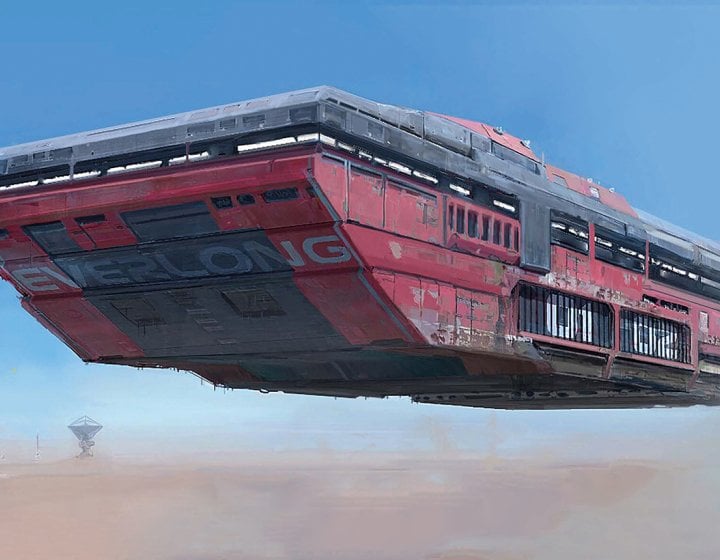
Game Art BA(Hons)
Work in multi-skilled collaborative teams and graduate as a confident, industry-ready game artist. ...
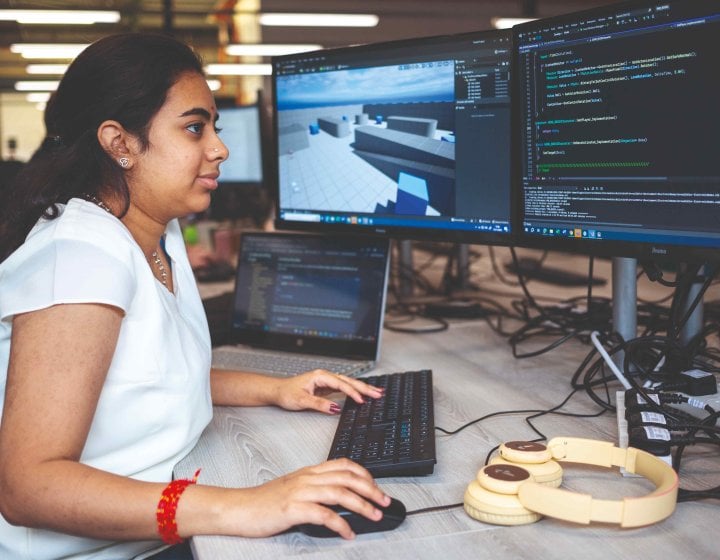
Computing for Games BSc(Hons)
Learn how to shape the games of the future by studying game development through the lens of computer...
